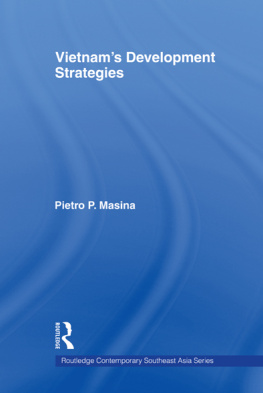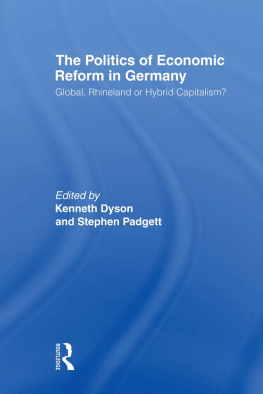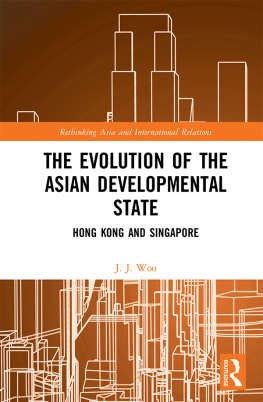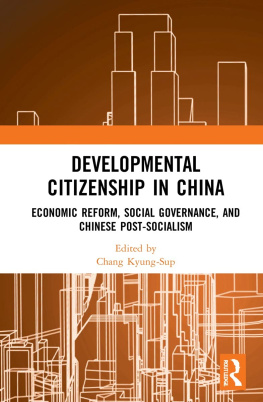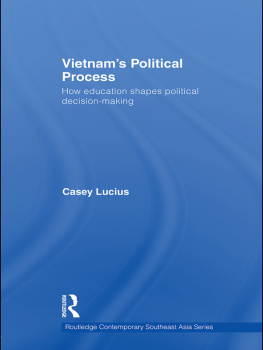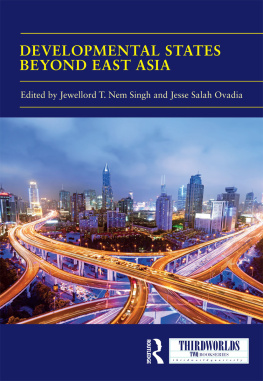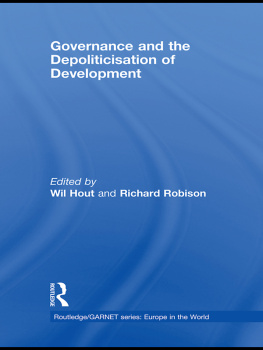Vietnams Development Strategies
Taking a developmental approach, this book provides a critical analysis of Vietnams reform process and shows how the countrys reform agenda is still dominated by a developmental orthodoxy inspired by a post-Washington consensus. Masina argues that a wider debate is needed to allow national policymakers the full spectrum of alternatives with which to make well-informed policy decisions. In particular, the book indicates that two elements central to any analysis of the Vietnamese development reform process are substantially underdeveloped in the current debate: the experience of the East Asian developmental state and the question of socialism within a future market economy.
Vietnams Development Strategies opens up the debate, to challenge the prevailing orthodoxy and to test possible alternatives for Vietnam. It is a welcome addition to the literature and will appeal to both practitioners working in the field and the academic community in Southeast Asian studies, economics and development.
Pietro P.Masina is Associate Professor of International Political Economy at the University of Naples The Oriental and Secretary of the European Association for Southeast Asian Studies (EuroSEAS). He spent the previous ten years at the Roskilde University, Denmark, where he still maintains affiliation as Associate Professor on-leave. His previous publications include Rethinking Development in East Asia: From Illusory Miracle to Economic Crisis (RoutledgeCurzon, 2001).
Routledge Contemporary Southeast Asia Series
1 Land Tenure, Conservation and Development in Southeast Asia
Peter Eaton
2 The Politics of Indonesia-Malaysia Relations
One Kin, Two Nations
Joseph Chinyong Liow
3 Governance and Civil Society in Myanmar
Education, Health and Environment
Helen James
4 Regionalism in Post-Suharto Indonesia
Edited by Maribeth Erb, Priyambudi Sulistiyanto and Carole Faucher
5 Living with Transition in Laos
Market Integration in Southeast Asia
Jonathan Rigg
6 Christianity, Islam and Nationalism in Indonesia
Charles E.Farhadian
7 Violent Conflicts in Indonesia
Analysis, Representation, Resolution
Edited by Charles A.Coppel
8 Revolution, Reform and Regionalism in Southeast Asia
Cambodia, Laos and Vietnam
Ronald Bruce St John
9 The Politics of Tyranny in Singapore and Burma
Aristotle and the Rhetoric of Benevolent Despotism
Stephen McCarthy
10 Vietnams Development Strategies
Pietro P.Masina
Vietnams Development Strategies
Pietro P.Masina

LONDON AND NEW YORK
First published 2006
by Routledge
2 Park Square, Milton Park,
Abingdon, Oxon OX14 4RN
Simultaneously published in the USA and Canada
by Routledge
270 Madison Ave, New York, NY 10016
Routledge is an imprint of the Taylor & Francis Group, an informa business
This edition published in the Taylor & Francis e-Library, 2006.
To purchase your own copy of this or any of Taylor & Francis or Routledges collection of thousands of eBooks please go to www.eBookstore.tandf.co.uk.
2006 Pietro P.Masina
All rights reserved. No part of this book may be reprinted or reproduced or utilized in any form or by any electronic, mechanical, or other means, now known or hereafter invented, including photocopying and recording, or in any information storage or retrieval system, without permission in writing from the publishers.
British Library Cataloguing in Publication Data
A catalogue record for this book is available from the British Library
Library of Congress Cataloging in Publication Data
Masina, Pietro P.
Vietnams development strategies/By Pietro P.Masina.
p. cm.(Routledge contemporary Southeast Asia series; 10)
Includes bibliographical references and index.
ISBN 0-415-34311-9 (hardback: alk. paper) 1. Vietnam-Economic policy. 2. Vietnam-Economic conditions. I. Title. II. Series.
HC444.M36 2006
338.9597dc22
2005024435
ISBN13: 978-1-134-29088-8 ePub ISBN
ISBN10: 0-415-34311-9(hbk)
ISBN10: 0-203-34130-9 (ebk)
ISBN13: 9-78-0-415-34311-4(hbk)
ISBN13: 9-78-0-203-34130-8 (ebk)
Acknowledgements
The usual qualification applies: more people have helped me in this work than those I can name here. I am in debt to the numerous Vietnamese and foreign colleagues who have shared with me their time and their knowledge. My gratitude also goes to the many Vietnamese friends that, over the years, have taught me to love their beautiful country. Although this text reflects the biases and the (often misguided) perceptions of an outsider, I know that without the support of my Vietnamese friends this work would have been even more inadequate. My appreciation goes to (in no specific order): Dinh Thi Ngoc Bich, Dinh Thi Bich Thuy, Dang Dinh Long, Nguyen Thi Nguyet Que, Nguyen Thanh Ha, Nguyen Thanh Tung, Nguyen Quang Sang, Do To Khanh.
A number of research institutions and individual scholars have provided me with invaluable support. I would like to thank in particular: Bui Huy Khoat, Nguyen Quang Thuan, Centre for European Studies; Le Dinh Tien, NISTPASS; Vo Dai Luoc and Le Bo Linh, Institute for World Economy; Vu Cao Dam, Nguyen An Lich, Department of Sociology, Hanoi National University; Nguyen Thu My, Institute of Southeast Asian Studies; Nguyen Thanh Hung, Ministry of Trade; Nguyen Dinh Hoa and Bui Duc Hai, Institute of Social Sciences and Humanities, Ho Chi Minh City; Tran Ngoc Hien, Vietnam Union of Science and Technology Associations; Le Dang Doanh, MPI; Ngo Doan Vinh, Vu Van Hoa, Development Strategy Institute, MPI; Vu Tuan Anh, Vietnams Socio-Economic Development Review; Dang Ngoc Dinh, Science and Fatherland Journal.
I would also like to acknowledge here my gratitude towards a number of non-Vietnamese scholars and friends who have helped me in various ways: Irene Nrlund, Anders Baltzer Jrgensen, Rolf Hern, Per Ronns, Curt Nestor, Laurids Lauridsen, Kristen Nordhaug, Katrine Plesner, Jonathan London, Jakob Lindahl, Helle Buchhave, Morten Larsen, Hanne Mogensen, Sara Rezoagli, Keinichi Ohno, Carlo Batori, Rajneesh Narula, Sren and Mette Davidsen.
A special thought goes to the late professor Enrica Collotti Pischel, whose teaching has always been a unique source of inspiration for me, as it has for several generations of Italian students of Asia.
This research would not have been possible without the moral and material support of the Department of Social Sciences, Roskilde University, which was my academic home for over 10 years. The Nordic Institute of Asian Studies graciously hosted me for 1 year and allowed me to use its excellent library. The European Commission gave me an initial grant through the TMR scheme, making it possible to start this research.
Andrew Crabtree, Mike Parnwell and Jonathan Rigg kindly accepted to be the guinea pigs for different chapters. Not only did they make constructive observations, but they also kindly helped in refining the language. Bruno Amoroso, Chris Dixon, Jaques Hersh and Jesper Jespersen made a number of valuable comments and criticisms of an earlier draft, allowing me to amend and improve the manuscript: I gratefully acknowledge the feedback I received from them. Valuable feedback was also received by two anonymous reviewers, whose detailed comments were a precious support in the final revision.

